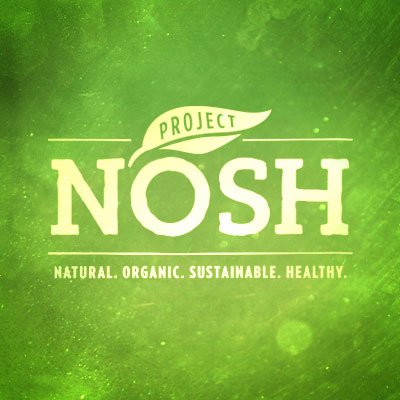
Key Takeaways from the Apeel Controversy and Where We Go From Here
(Image from the Apeel Sciences website)
How Organic Insider operates: We accept no advertising, we have no paywalls and we make our newsletters free to everyone because vital information about our industry needs to get out to as many people as possible. Please consider supporting our work, whether you are an individual or a company. Thank you so much.
Apeel Sciences, which has raised $640M from investors such as Andreessen Horowitz and the Bill & Melinda Gates Foundation, produces an organic-approved coating called Organipeel for various fruits and vegetables, and based on the company’s website, it is being used on organic apples currently for sale in Idaho and in Germany.
Over the past month, misinformation and confusion about this coating spread like wildfire, as a similarly named product that contains toxic synthetic chemicals was widely misidentified as being approved for use in organic production.
Where we currently stand is that Apeel’s Organipeel coating, which has been registered with the EPA as a fungicide, is comprised of 0.66% citric acid and 99.34% of a formulation that is undisclosed.
Here are five key takeaways.
1) THE USDA NEEDS TO REMOVE AMBIGUITY
Even though the exact formulation of the 99.34% is not openly disclosed to the public, that is, in itself, not a violation of organic rules. The full formulation is considered proprietary information and a trade secret.
That being said, all of the formulation’s ingredients must be disclosed to any organic certifier who approved the use of this product, as well as any third-party materials review organization (MRO) that has been asked to confirm that the material is in compliance with USDA organic regulations, which, among other things, means no use of genetic engineering. The Organic Materials Review Institute (OMRI), the most well-known MRO in the organic industry, completed a review of Organipeel.
What we do know, based on publicly available FDA documents, is that monoglycerides — which are additives often used in processed foods — appear to comprise part of the 99.34%, something that OMRI would not confirm or deny.
According to Orsi Dézsi, executive director and CEO of OMRI, “OMRI reviewed and approved Apeel’s Organipeel as a fungicide for post-harvest use, not as a fruit coating for use in further processing of organic products. OMRI reviews products for the uses indicated by the manufacturers, not for every conceivable use. If an OMRI Listed® product is used in an application beyond those indicated in its OMRI listing, it could be out of USDA organic compliance. When it comes to the post-harvest handling of produce, OMRI bases its policy on NOP 5023, a guidance document from the National Organic Program (NOP) that intends to clarify what is permitted based on the USDA organic regulations.”
Apeel clearly markets its product to the public as a “coating” and explained it as such to the FDA in its GRAS application.
Where it gets confusing is that in NOP 5023 language, the USDA refers to “coatings” as “further processing,” but OMRI did not approve Organipeel as a “coating for use in further processing.”
OMRI approved Organipeel as a fungicide for “post-harvest handling,” whose definition in NOP 5023 includes “pest control practices” — which describes a fungicide.
All of this points to: is Organipeel a “coating” or a “fungicide?”
The apparent interchangeability of “coating” and “fungicide” is a source of confusion, and the USDA needs to eliminate this ambiguity to determine whether Apeel must also seek approval for Organipeel as a “coating for use in further processing” in order to be in compliance.
2) LACK OF USDA OVERSIGHT OF MATERIAL REVIEW ORGANIZATIONS
MROs are third-party organizations that work closely with organic certifiers, providing technical expertise to review whether materials and processes are in compliance with organic regulations.
This is work that many certifiers may be unqualified to do or do not necessarily have the time to complete themselves. Many farmers transitioning to organic, as well as brands who have questions about organic-approved materials, rely heavily on MROs.
Without question, MROs play an extremely valuable role in the organic ecosystem, but it is important to make the distinction that MROs are not organic certifiers and are not regulated by the USDA.
As such, they can deem inputs to be in compliance with organic regulations, but they are not the final say. Organic certifiers are the final arbiters.
“The problem we have is that organic certifiers almost always rubber-stamp the decisions made by OMRI when it comes to deciding what materials and formulations are allowed in organic,” said Mark Kastel, executive director of OrganicEye, one of the industry’s most important watchdog groups. “So, 99.34% of the formulation of Organipeel is not only being kept hidden from the public, but we are forced to trust an unregulated, corporate-funded organization in OMRI to essentially interpret and enforce the USDA organic regulations. This creates a real lack of trust.”
In 2011, the National Organic Standards Board recommended to the USDA that it provide direct oversight of MROs. The agency declined to do so on the basis that it only had the statutory authority to regulate organic certifiers, not MROs.
3) THE MARKETPLACE WIELDS REAL INFLUENCE
Similar to how the organic community had an enormous impact in pressuring brands to remove carrageenan from their products — even though it was never deemed illegal by the USDA’s National Organic Program — the same is already taking place here with Apeel.
Natural Grocers, a grocery chain with 166 stores across the country, has already banned Apeel.
“We do not allow Apeel and have notified our produce supply chain partners that we would not accept any organic or non-organic produce that is treated with Apeel coatings. This is not something that we want in our food supply,” said Alan Lewis, the company’s vice president of regulatory affairs.
 (Signs that appear in the produce section of all Natural Grocers stores. Photo credit: Sam Welsch of OneCert, Inc.)
(Signs that appear in the produce section of all Natural Grocers stores. Photo credit: Sam Welsch of OneCert, Inc.)
“Organic consumers should not underestimate their power, and they need to tell the retailers where they shop to ban Apeel, as well as other questionable materials or practices. Their voices matter,” added OrganicEye’s Mark Kastel.
4) THERE ARE MUCH BIGGER, MORE IMPORTANT ISSUES
Excluding the GMO-labeling campaign a decade ago, Apeel may have garnered more attention than any other issue in the history of organic.
Yet, when we look at two of the other major controversies in organic — hydroponics being allowed in organic and the USDA turning a blind eye to organic factory dairy and egg farms — Apeel pales in comparison.
One could easily speculate that in terms of lost sales to both organic soil-grown produce farmers and dairy & egg farmers that are following the letter and spirit of the organic rules, the number is in the billions, not to mention all of the consumers who are paying premium prices on products that may not be meeting their expectations.
These two controversies are greatly deserving of the social media attention that Apeel received and are far more devastating to consumers and our industry.
5) EMPHASIS ON LOCAL ORGANIC AND GROWING YOUR OWN
What this Apeel controversy all comes back to is that consumers should prioritize purchasing organic from their local farmers, as these producers will be much less likely to use controversial ingredients and materials. After all, they’re not storing produce, like apples, for six months or longer. The same holds true for the importance of growing your own food as much as possible.
As the organic supply chain becomes more global and an increasing amount of investment dollars flows into the space, the pressure from lobbyists and brands to cut corners is sure to grow.
The USDA can and will only do so much, which means that consumers must be more vigilant than ever.
 |
With gratitude, 
Max Goldberg, Founder |
Quick Hits
* NOFA-Vermont is accepting donations for its Farmer Emergency Fund to help those impacted by the catastrophic flooding this past week.
* Arjan Stephens, of the family-owned and operated Nature’s Path Organic Foods, has taken over as its new president, and he talks about the company’s acquisition strategy. Nature’s Path Organic Foods also named the winners of its 2023 Gardens for Good program.
* After nearly 30 years of running Lotus Foods, organic rice pioneers Caryl Levine and Ken Lee have handed over the reins to Andrew Burke, who is the new CEO.
* Once Upon a Farm released its 2022 Impact Report.
* Daily Harvest just announced a collaboration with Kroger, which will bring its products to more than 1,100 grocery locations nationwide.
* ECOFashion Corp’s founder/CEO Marci Zaroff discusses sustainable fashion and its influence on the fashion industry.
* Erewhon’s latest collab — Regenerative Organic A2 Dairy Honey Blueberry Lavender Shake — features Alexandre Family Farms and Alec’s Ice Cream.
* The first mini-documentary of Kiss The Ground’s “Stories of Regeneration” profiles organic farmer and Los Angeles restaurateur Mollie Engelhart.
* The diet of the world’s best tennis player.
* Serenbe, the pioneering wellness community in Georgia, has plans for an innovative aging-in-place campus.
* For artists like Beyoncé, Paul McCartney and Lizzo, concert tour cooking has gone healthy.
New Organic Products
Daily Ritual Pack from Suja Organic
New from Suja Organic is a Daily Ritual Pack, which includes its Immunity, Energy and Digestion wellness shots. The pack contains pre- and probiotics to support gut and immune health, 100mg of plant-powered caffeine per energy shot, and functional ingredients such as ginger, turmeric and echinacea.Peach and Strawberry Banana Cashewmilk Yogurt from Forager Project
Forager Project has expanded its lineup of organic, vegan Cashewmillk Yogurt Pouches to include two new flavors -- peach and strawberry banana. The company has also announced a 4-pack size for select flavors. Each pouch contains probiotics, calcium and essential vitamins D, A and B12. Available at retailers nationwide.Cream Bronzer from Kjaer Weis
Luxury organic beauty brand Kjaer Weis has just launched a new Cream Bronzer. Made with certified organic ingredients such as cold-pressed sweet almond oil, rosehip oil and vanilla extract, it is available in four shades -- soft neutral tan, golden tan, neutral medium brown and neutral brown.Coconut Water from Kokomio
Kokomio has announced that its certified organic coconut water will be available at Sprouts Farmers Market nationwide in October. Locally grown, produced and bottled in Mexico, the coconut water contains 4g of natural sugar per 8 ounces and 70% less sugar than other brands. The company's sustainability initiatives include KokoChill, a husk fiber insulation product used for shipping and packaging.
Weekly News Summaries


Nearly Half of the Tap Water in the U.S. is Contaminated with ‘Forever Chemicals’
By Jen Christensen
Very disturbing. Almost half of the tap water in the U.S. is contaminated with PFAS chemicals, according to a new study from the U.S. Geological Survey.

Bobbie acquires Nature’s One
To fund the acquisition, the organic infant formula company is closing a $70 million Series C, led by a $35 million investment from PowerPlant Partners.

Eight Trends from the Organic Produce Summit
By Pamela Riemenschneider
Business greens and sustainable packaging were two of the trends from Monterey.


Erewhon invests in Organic Coconut Brand Zuma Valley
"At Erewhon, we taste thousands of new products every year. Zuma Valley is the best-tasting, purest coconut we have ever found," said Erewhon CEO Tony Antoci.

Genetically-Engineered “Piggy Sooy”
By Gaynor Selby and Benjamin Ferrer
The science experiments on our food supply continue unabated, with pork protein being cultivated within genetically-engineered soybeans.

Perfect Day Lays Off 15% of Workforce
By Carol Ortenberg
Not a real surprise. GMO 2.0 animal-free whey protein is proving not to be as popular as some investors anticipated.

Report: Regenerative Agriculture Efforts Need CPG Assistance
By Jeff Gelski
Transitioning to regenerative agriculture systems from conventional systems should increase profitability for farmers in the long run, but they will need assistance for three to five years.


The Detox Project simplifies Contaminant-Free Claims with CleanScan Certification Program
By Ryan Daily
The new certification program will help CPG brands tell a better story around their contaminant-free claims with the help of QR codes, said Henry Rowlands, founder of The Detox Project.

Improving Soil Could Keep World Within 1.5C Heating Target, Research Suggests
By Fiona Harvey
Better farming techniques across the world could lead to storage of 31 gigatonnes of carbon dioxide a year, data shows.

Coca-Cola launches Sustainability-Focused Venture Capital Fund
By Monica Watrous
The $138M Greycroft Coca-Cola System Sustainability Fund will focus on packaging, heating and cooling, facility decarbonization, distribution and supply chain.
Want to share this newsletter on social media? You can use this link: Newsletter Link
The material in this newsletter is copyrighted and may be reprinted by permission only. All requests must be in writing. Please use our contact form to request republication rights.
Newsletter Archive
Quick Hits
* NOFA-Vermont is accepting donations for its Farmer Emergency Fund to help those impacted by the catastrophic flooding this past week.
* Arjan Stephens, of the family-owned and operated Nature’s Path Organic Foods, has taken over as its new president, and he talks about the company’s acquisition strategy. Nature’s Path Organic Foods also named the winners of its 2023 Gardens for Good program.
* After nearly 30 years of running Lotus Foods, organic rice pioneers Caryl Levine and Ken Lee have handed over the reins to Andrew Burke, who is the new CEO.
* Once Upon a Farm released its 2022 Impact Report.
* Daily Harvest just announced a collaboration with Kroger, which will bring its products to more than 1,100 grocery locations nationwide.
* ECOFashion Corp’s founder/CEO Marci Zaroff discusses sustainable fashion and its influence on the fashion industry.
* Erewhon’s latest collab — Regenerative Organic A2 Dairy Honey Blueberry Lavender Shake — features Alexandre Family Farms and Alec’s Ice Cream.
* The first mini-documentary of Kiss The Ground’s “Stories of Regeneration” profiles organic farmer and Los Angeles restaurateur Mollie Engelhart.
* The diet of the world’s best tennis player.
* Serenbe, the pioneering wellness community in Georgia, has plans for an innovative aging-in-place campus.
* For artists like Beyoncé, Paul McCartney and Lizzo, concert tour cooking has gone healthy.




